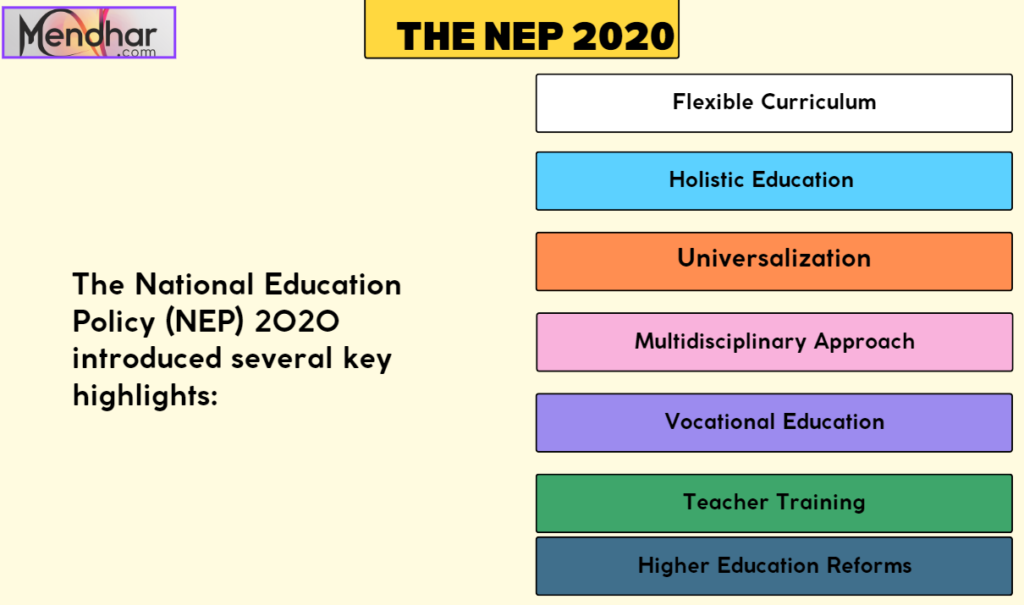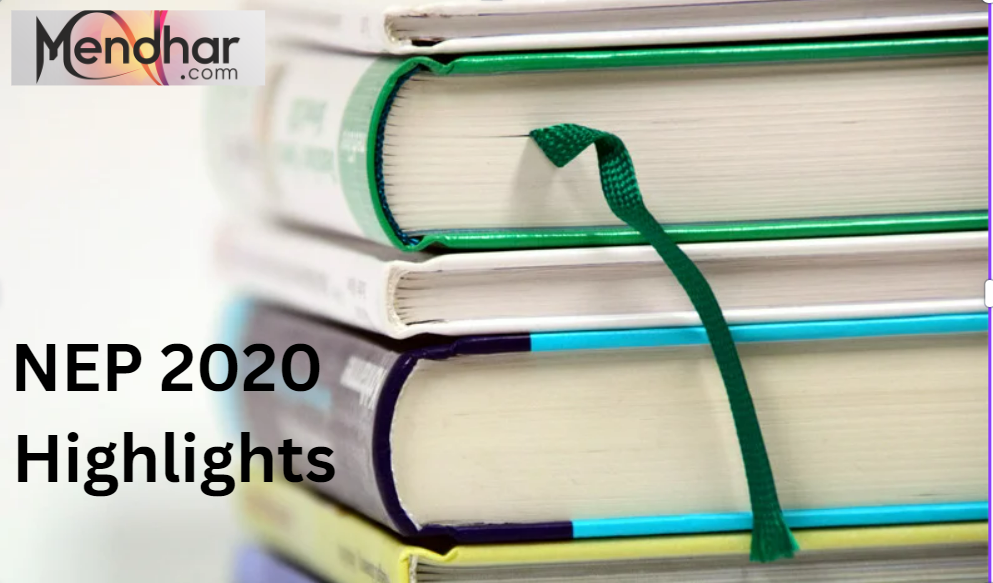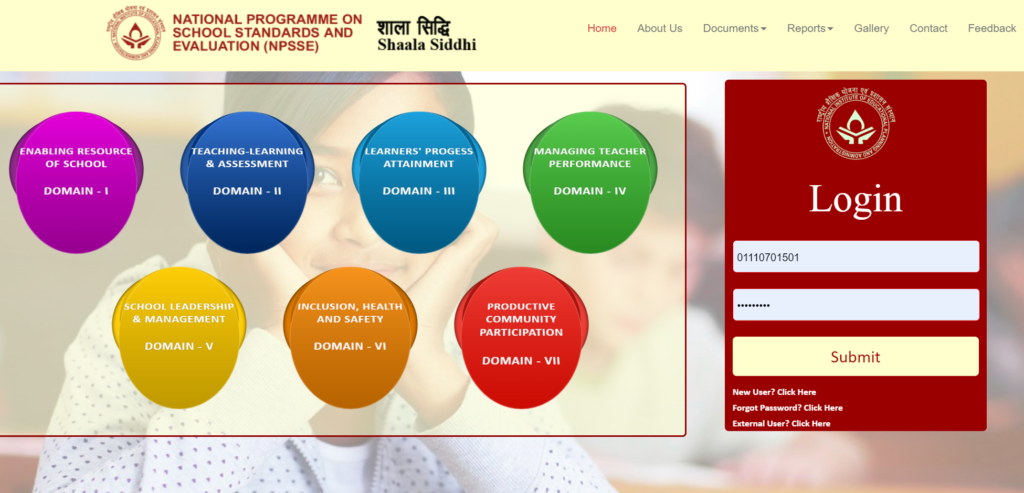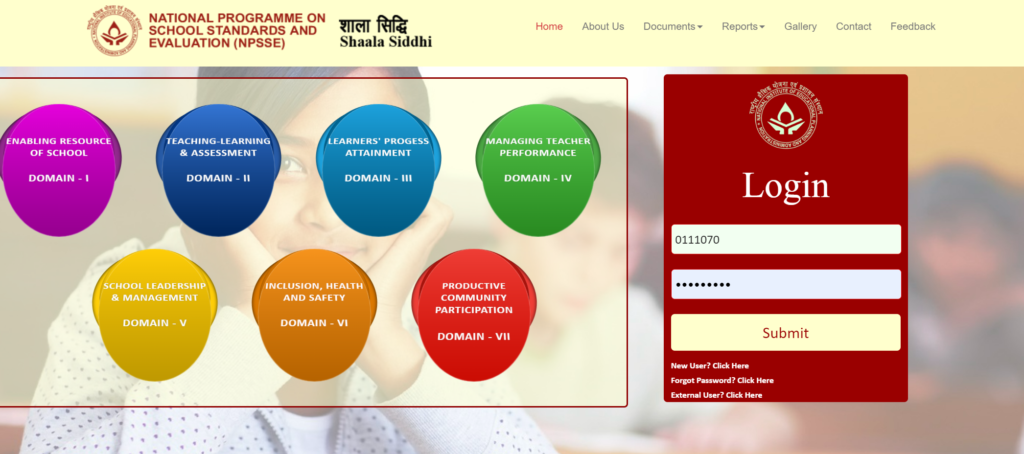Table of Contents
ToggleExploring NEP 2020 Highlights: A Transformative Step in Indian Education

Introduction:
NEP 2020’s emphasis on holistic development, including cognitive, social, and emotional aspects, reflects a progressive shift from the traditional rote-learning model. By promoting multidisciplinary education and integrating vocational training, it seeks to equip students with practical skills essential for both academic and real-world success. Moreover, the policy’s focus on continuous teacher training and assessment reforms aims to foster a dynamic learning environment conducive to innovation and critical thinking. NEP 2020 also underscores the importance of leveraging technology to enhance learning outcomes and streamline educational governance. By prioritizing regional languages and offering flexibility in curriculum design, the policy endeavors to cater to diverse learning needs and promote inclusivity. With its ambitious vision and strategic reforms, NEP 2020 holds the potential to transform India’s education system, fostering a generation of empowered learners ready to thrive in an increasingly complex global landscape.
1. Holistic Approach to Learning:
NEP 2020 underscores the importance of a holistic and multidisciplinary learning approach, urging students to venture beyond conventional subject boundaries to nurture creativity and critical thinking. It champions the integration of vocational education from an early stage, ensuring that students acquire practical skills alongside theoretical knowledge, thus preparing them comprehensively for the challenges of the future.
In practical terms, embracing a holistic approach means integrating diverse learning experiences and fostering an inclusive educational environment that caters to the multifaceted needs of learners. It involves providing opportunities for students to engage in experiential learning, creative expression, critical thinking, problem-solving, and collaborative activities. Moreover, holistic education emphasizes the importance of promoting values such as empathy, compassion, tolerance, respect, and environmental stewardship, thus cultivating responsible global citizens who are sensitive to the needs of others and the world around them.
NEP 2020 recognizes that a holistic approach to learning is essential for preparing individuals to thrive in the 21st-century world, which is characterized by rapid technological advancements, globalization, and complex societal challenges. By fostering holistic development, the policy aims to equip learners with the skills, attitudes, and values necessary to navigate life’s complexities, adapt to change, contribute positively to society, and lead fulfilling and meaningful lives. Thus, embracing a holistic approach to learning is not only beneficial for individuals but also essential for building a more inclusive, equitable, and sustainable future for all.
2. Early Childhood Care and Education (ECCE):
One of the pivotal highlights of NEP 2020 is its focus on Early Childhood Care and Education (ECCE). Recognizing the importance of formative years in a child’s development, the policy aims to provide universal access to quality ECCE for all children aged 3-6 years by 2025. This initiative lays a strong foundation for future learning and cognitive development.
Moreover, NEP 2020 acknowledges the pivotal role of Early Childhood Care and Education (ECCE) in shaping a child’s developmental trajectory. Understanding the significance of the formative years, the policy ambitiously strives to ensure universal access to high-quality ECCE for all children aged 3-6 years by the year 2025. This strategic initiative not only aims to provide equitable opportunities but also lays a robust foundation for future learning and cognitive growth, setting the stage for lifelong educational attainment and holistic development. By prioritizing ECCE, NEP 2020 demonstrates a commitment to nurturing the potential of every child from the outset, thereby fostering a more inclusive and prosperous society.
3. School Education Reforms:
NEP 2020 proposes significant reforms in the school education system. It advocates for a 5+3+3+4 curricular structure, replacing the conventional 10+2 system. This restructured format divides the school years into foundational (3-8 years), preparatory (8-11 years), middle (11-14 years), and secondary (14-18 years) stages, aligning with the cognitive development stages of children.
| Stage | Age Group | Educational Focus |
|---|---|---|
| Foundational | 3-8 years | Play-based learning |
| Preparatory | 8-11 years | Discovery-based learning |
| Middle | 11-14 years | Subject-specific learning |
| Secondary | 14-18 years | Specialized subjects |
4. Flexible Curriculum and Choice-Based Learning:
NEP 2020 introduces a flexible curriculum framework that allows students to choose subjects based on their interests and aptitudes. This departure from the rigid subject silos enables personalized learning experiences, empowering students to pursue their passions and excel in their chosen fields.
Furthermore, NEP 2020 heralds a departure from the conventional rigidity of subject silos by introducing a flexible curriculum framework. This innovative approach grants students the autonomy to select subjects aligned with their individual interests and aptitudes. By offering personalized learning experiences, the policy empowers students to explore their passions and excel in their chosen fields. This shift not only promotes academic engagement but also fosters a deeper understanding of diverse disciplines, thereby nurturing well-rounded individuals capable of navigating an increasingly complex world with confidence and competence. Through its emphasis on flexibility and personalized learning, NEP 2020 underscores a commitment to fostering a dynamic educational environment that caters to the unique needs and aspirations of every learner, paving the way for a more inclusive and responsive education system.
5. Multilingualism and Language Diversity:
Recognizing the linguistic diversity of India, NEP 2020 promotes multilingualism as a crucial aspect of education. It suggests the implementation of a three-language formula, wherein students will learn three languages: their mother tongue, a regional language, and a widely spoken language. This approach not only preserves cultural heritage but also enhances cognitive abilities and communication skills.

6. Emphasis on Teacher Training and Professional Development
Teachers are the cornerstone of any education system, serving as catalysts for the intellectual, emotional, and social development of students. Recognizing the pivotal role teachers play in shaping the future generation, NEP 2020 places a strong emphasis on prioritizing teacher training and professional development. The policy acknowledges that well-prepared and competent educators are essential for delivering high-quality education that meets the diverse needs of learners in the 21st century.
NEP 2020 envisions a comprehensive overhaul of teacher education programs to align them with contemporary educational paradigms and best practices. This overhaul entails a shift towards practical, hands-on training that equips teachers with the pedagogical skills, instructional strategies, and classroom management techniques necessary to engage and inspire students effectively. Additionally, the policy emphasizes the importance of continuous upskilling and professional development for teachers throughout their careers, ensuring that they remain abreast of the latest research, methodologies, and technological advancements in education.
Furthermore, NEP 2020 advocates for the integration of technology in teaching methodologies, recognizing its potential to enhance learning outcomes, facilitate personalized instruction, and promote innovative pedagogical approaches. By harnessing the power of technology, teachers can create dynamic and interactive learning environments that cater to the diverse learning styles and preferences of students. Moreover, technology-enabled teaching tools and platforms can facilitate collaboration, creativity, and critical thinking among students, preparing them to thrive in a rapidly evolving digital world.
Ultimately, by prioritizing teacher training and professional development, NEP 2020 aims to foster a cadre of highly skilled, motivated, and empowered educators who are equipped to deliver transformative learning experiences. By investing in the professional growth and well-being of teachers, the policy seeks to elevate the quality of education across the board, ultimately benefiting students, communities, and society as a whole.
7. Integration of Technology in Education:
NEP 2020 recognizes the transformative potential of technology in revolutionizing education and preparing students for success in the digital age. In response to the rapid advancements in technology and the increasing digitalization of society, the policy underscores the importance of integrating technology across all levels of education. By harnessing digital tools and resources, educators can create dynamic and engaging learning experiences that cater to the diverse needs and preferences of students.
One of the primary objectives of integrating technology in education, as outlined by NEP 2020, is to promote digital literacy among learners. By incorporating digital tools and resources into classroom instruction, students not only gain proficiency in using technology but also develop essential digital skills such as information literacy, critical thinking, problem-solving, and digital citizenship. These skills are vital for navigating the digital landscape, accessing information, evaluating sources, and communicating effectively in an increasingly interconnected world.
Moreover, NEP 2020 recognizes the potential of technology to bridge the urban-rural divide in access to quality education. By leveraging technology-enabled learning platforms, students in remote and underserved areas can access educational resources and opportunities that were previously unavailable to them. This has the potential to democratize education and empower learners from diverse backgrounds to pursue their educational aspirations irrespective of geographical constraints.
In line with its vision to promote effective integration of technology in pedagogy, NEP 2020 proposes the establishment of a National Educational Technology Forum (NETF). The NETF is envisaged as a platform for fostering collaboration, sharing best practices, and facilitating capacity-building initiatives related to educational technology. By bringing together policymakers, educators, technologists, and other stakeholders, the NETF aims to drive innovation, research, and development in educational technology, thereby ensuring its effective implementation and impact on teaching and learning outcomes.
Overall, NEP 2020’s emphasis on integrating technology in education reflects a forward-thinking approach to preparing students for the challenges and opportunities of the digital age. By embracing technology-enabled pedagogies, the policy seeks to enhance the quality, accessibility, and equity of education, ultimately empowering learners to thrive in an increasingly digitized and interconnected world.
8. Focus on Assessment Reforms:
NEP 2020 proposes a paradigm shift in assessment practices, moving away from rote memorization towards competency-based assessments. It advocates for the incorporation of formative and summative assessments throughout the learning process to gauge not only academic knowledge but also critical thinking, problem-solving, and practical skills. This holistic approach to assessment aims to provide a comprehensive evaluation of students’ abilities and foster a conducive learning environment.
Conclusion:
In conclusion, the National Education Policy 2020 heralds a transformative journey towards a more equitable, inclusive, and excellence-driven education system in India. By addressing various aspects of education and fostering collaboration among stakeholders, NEP 2020 lays the groundwork for a brighter future, where education is not just a means to acquire knowledge but a pathway to personal growth, societal progress, and national development.
In addition to these reforms, NEP 2020 advocates for the integration of technology in education, the promotion of multilingualism, and the adoption of competency-based assessments. By harnessing the power of digital tools and resources, promoting linguistic diversity, and redefining assessment practices, the policy aims to create a more inclusive, innovative, and learner-centric educational ecosystem.
Frequently Asked Questions (FAQ) about the National Education Policy 2020:
1. What is the National Education Policy 2020 (NEP 2020)?
- NEP 2020 is a comprehensive policy document formulated by the Government of India to overhaul the country’s education system. It aims to address various challenges and gaps in the existing system and align it with the demands of the 21st century.
2. What are the key highlights of NEP 2020?
- Some key highlights of NEP 2020 include:
- Emphasis on early childhood care and education (ECCE)
- Introduction of a flexible curricular structure (5+3+3+4)
- Focus on holistic and multidisciplinary learning
- Promotion of multilingualism and language diversity
- Emphasis on teacher training and professional development
- Integration of technology in education
- Reform in assessment practices towards competency-based assessments
3. How does NEP 2020 impact school education?
- NEP 2020 proposes significant reforms in school education, including the restructuring of the curricular framework, emphasis on holistic learning, integration of vocational education, promotion of multilingualism, and focus on teacher training and professional development.
4. What are the implications of NEP 2020 for higher education?
- NEP 2020 aims to transform higher education by promoting flexibility and innovation, fostering multidisciplinary learning, encouraging research and innovation, promoting autonomy and accountability among higher education institutions, and enhancing access and equity in higher education.
5. How does NEP 2020 address teacher training and professional development?
- NEP 2020 emphasizes the importance of teacher training and professional development by revamping teacher education programs, integrating technology in teaching methodologies, promoting continuous upskilling, and enhancing support systems for educators.
6. What role does technology play in NEP 2020?
- NEP 2020 recognizes the importance of technology in education and advocates for its integration to facilitate interactive learning experiences, promote digital literacy, bridge the urban-rural divide in access to education, and enhance the quality of teaching and learning.
7. How does NEP 2020 promote inclusivity and equity in education?
- NEP 2020 promotes inclusivity and equity in education by ensuring universal access to quality early childhood care and education, promoting multilingualism and linguistic diversity, providing flexibility in curriculum and assessment, and fostering a supportive environment for learners from diverse backgrounds.
- You might be interested to visit!
- RELATED ARTICLES




Pingback: नेशनल एजुकेशन पॉलिसी 2020: भारतीय शिक्षा का नया दिशा-निर्देश -
Absolutely the NEP 2020 is the key 🗝️ to success in modern field of Education